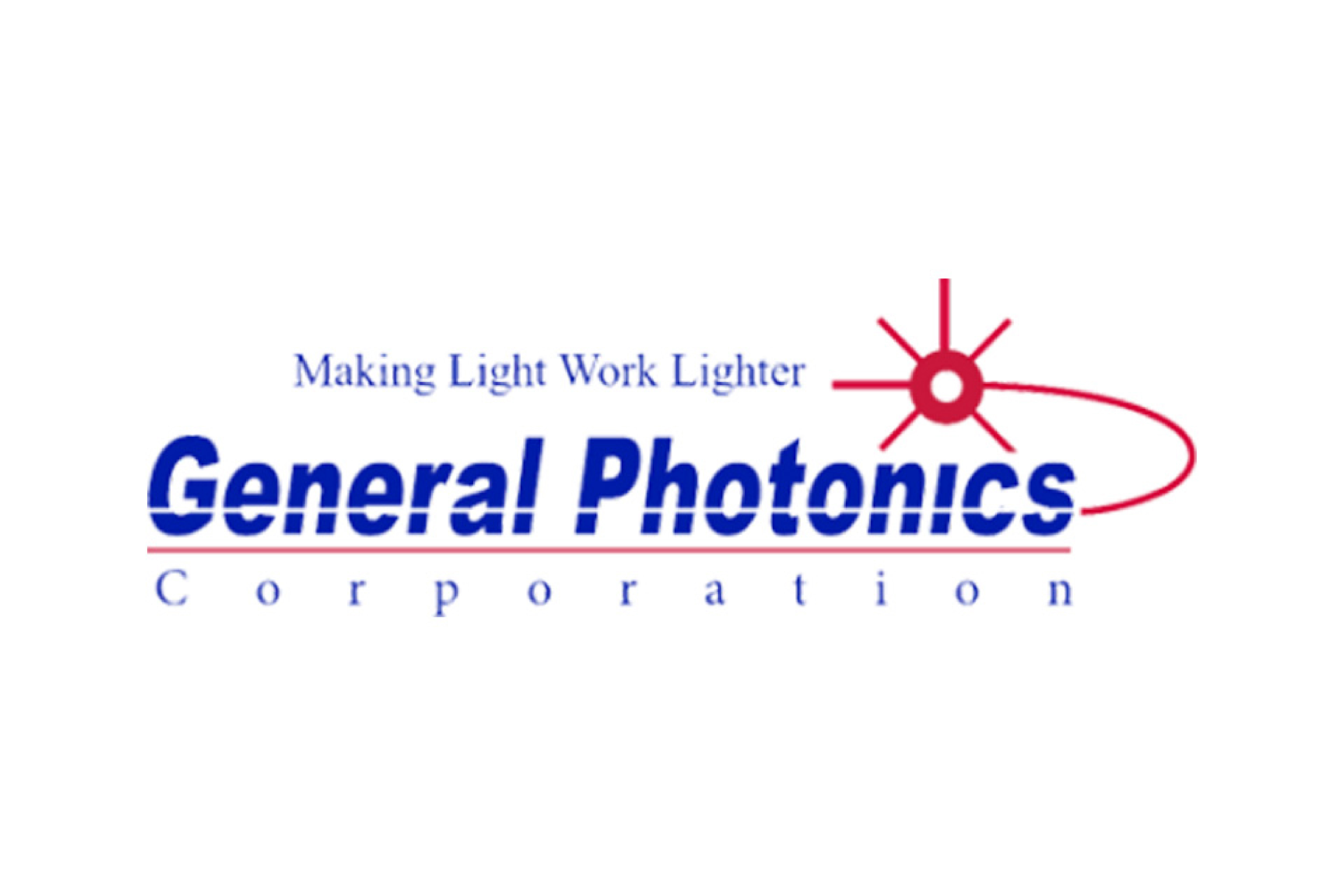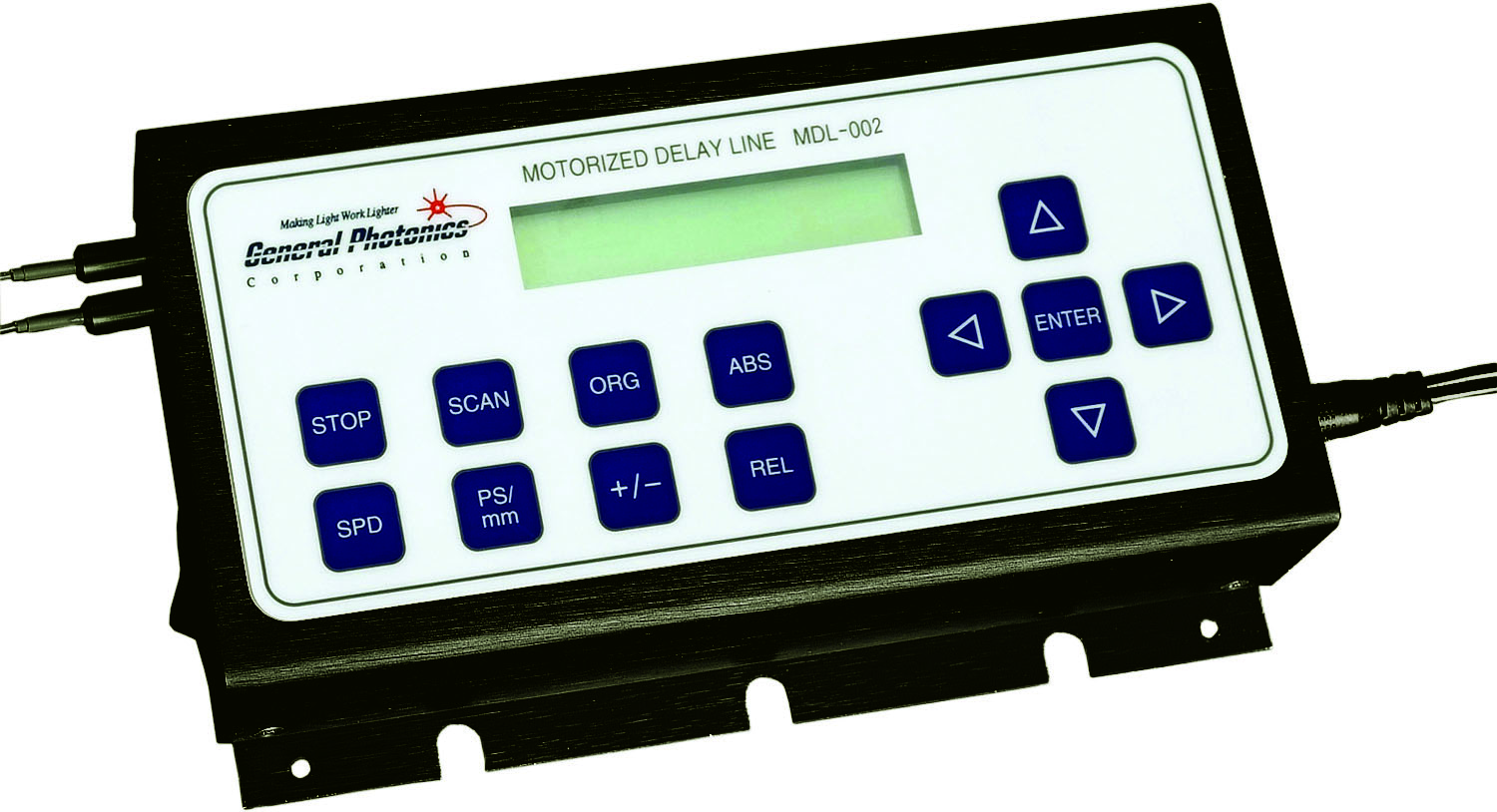Product information "MDL-002 Fiber Optic Delay Lines"
840-1650 nm; Delay Range 0-1,120 ps; RL 50 dB; Fiber Type SMF-28, HI1060, HI780, PM Panda, PM 980 Panda; IL 1.0, 1.5 dB; PDL 0.1, 0.2 dB
General Photonics’ MDL-002 family of motorized variable fiber optic optical delay lines allow optical path length adjustment of up to 560 ps in a single pass. Driven by a DC motor with an integrated encoder, the MDL-002 has a delay resolution of less than 0.3µm (1 fs).
In addition, its advanced motion design guarantees longevity for long-term continuous operation. Low insertion loss and high reliability make this device ideal for integration in optical coherence tomography (OCT) systems, network equipment and test instruments for precision optical path length control or timing alignment.
Three configurations of the MDL-002 fiber optic delay line series are available:
- Integrated unit for use as a bench-top instrument for laboratory applications
- Two-piece unit with the optical head and control unit separated for installation into customer equipment
- OEM version with a miniature controller board
All three versions can be remote controlled by a PC or a micro-processor through an RS-232 interface. The delay line is available with either single mode (SM) or polarization maintaining (PM) fiber pigtails.
Key Features:
- High Optical Delay Resolution: 0.3 µm / 1 fs, 0.6 µm / 2 fs Per Encoder Count
- Low Backlash
- Low Insertion Loss (IL): 1.0, 1.5 dB Typical
- Insertion Loss Variation: ±0.3, ±0.5, ±0.7 dB Over Entire
- High Delay-to-Length Ratio
- Optical Delay Range: 0 to 330, 0 to 560, 0 to 1,120 ps
- Operating Wavelength: 840 to 1650 nm
- Position Accuracy: ±3, ±6 µm
- Position Repeatability: ±3, ±6 µm
- Polarization Dependent Loss (PDL): 0.1, 0.2 dB Maximum
- Return Loss (RL): 50 dB
- Extinction Ratio: >18 dB (For PM Model)
- Optical Power Damage Threshold: 300 mW
- Control Mode: Panel Keypad and RS-232 Interface
- Fiber Type: SMF-28, HI1060, HI780, PM Panda, PM 980 Panda
- Dimensions: 178 x 102 x 41, 229 x 112 x 41 mm (Integrated Unit), 65 x 65 x 21.5 mm (Mini Controller Board), 132/157 x 37 x 18 mm (Optical Head)
Applications: Optical Coherence Tomography (OCT) Systems; Scientific Instrument Control; Network Optical Path Length Control or Timing Alignment; Optical Fourier Spectrum Analysis; Optical Interferometry; Delay Generation and Measurement; Optical Time Division Multiplexing (OTDM); Fiber Sensors


